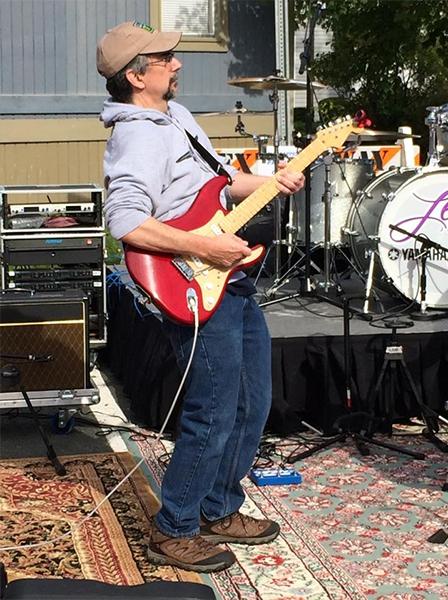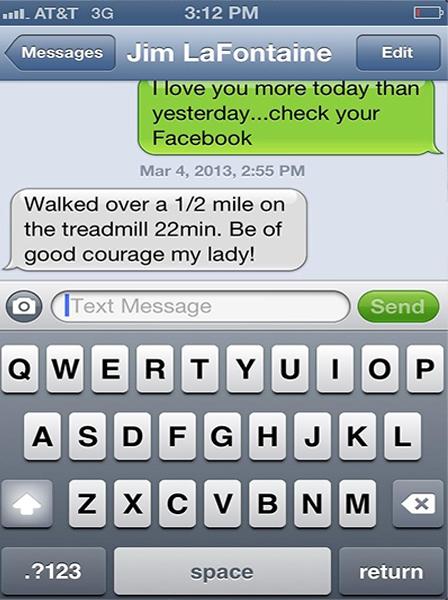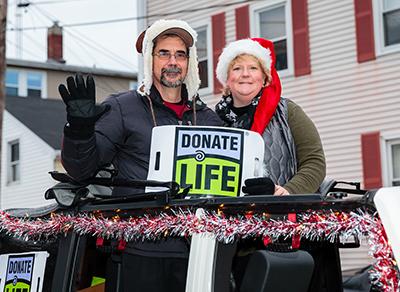What Makes a Donor Heart Available for Transplant Was Almost a ‘Deal Breaker’ for Pastor Who Needed One to Save His Life
A Massachusetts pastor supported by the SynCardia Total Artificial Heart for four months vows to live a life worthy of the person whose heart donation gave him a second chance at life.
Jim LaFontaine tries to live a life worthy of the person who donated the heart that gave the Essex, Massachusetts resident a second chance at life after he received a SynCardia temporary Total Artificial Heart implant that bridged him to that donor heart.
LaFontaine, 57, admits that while waiting for that matching donor heart, he struggled with the concept of receiving one.
“It was almost a deal breaker when I realized what someone had to do to for me to receive a donor heart,” says LaFontaine, a pastor at Emmanuel Community Church in Essex. “For me to receive a human heart means that someone is going to die. I can never in good conscious wish for a heart to come in.
“If the SynCardia Heart wasn’t just a bridge to transplant, if it was the destination, I think I would have considered just having a mechanical heart.”
When LaFontaine was 30 years old, a routine physical exam revealed a heart murmur. Eventually a cardiologist discovered that he was born with a bicuspid aortic valve, a condition that lessens the amount of blood flow to his entire body.
An aortic valve replacement and medications in 1991 stabilized his condition. Eighteen years later he developed ventricular tachycardia, a rapid and irregular heartbeat, for which he received a pacemaker and defibrillator.
LaFontaine’s heart weakened and in late 2012 he experienced severe breathing problems. “I felt like I was walking at the bottom of a pool underwater,” he says. “By that time, I thought, ‘I can’t live like this.’
“I used to dread going to bed because I couldn’t breathe and I had to get up so I could get more air into my lungs. It was a terrible feeling.”
In November 2012, he was admitted to a Salem, Massachusetts hospital and a few days later was transferred to Brigham and Women’s Hospital in Boston.
LaFontaine didn’t respond to heart medication and doctors determined his two heart ventricles needed replacement. That’s when surgeons asked him to consider a SynCardia Total Artificial Heart implant.
Similar to a heart transplant, the SynCardia Total Artificial Heart replaces the native heart’s two failed ventricles and the four heart valves. It is the only approved device in use that eliminates the source of end-stage biventricular heart failure, a condition in which the native heart can no longer pump enough blood for the patient to survive.
LaFontaine relied on his faith to help him make a decision. “You have those discussions with God,” he says, “and ask the question, ‘Am I ready?’ Well, I’m as ready as I’m ever gonna be.”
He received the SynCardia Heart implant on February 7, 2013. “My first waking thought was that I could breathe. I felt instantly better. I hadn’t felt that good in years,” LaFontaine remembers.
To get into the best shape for his matching donor heart transplant, LaFontaine spent the next four months walking around the hospital grounds and lifting two 10-pound weights. When he received the 13.5-pound Freedom® portable driver on April 8, he carried that weight in a backpack while walking as much as five miles a day.
The Freedom® portable driver that powers the SynCardia Heart gives clinically stable patients significant mobility and allows them to be discharged from the hospital to recover at home and community. For LaFontaine that meant getting back to playing his guitar and participating in his church.
“I would call Sunday morning at the start of services and they would put me on speaker phone,” he says. “I would do the opening prayers.”
When LaFontaine received his donor heart on June 5, 2013, he saw it as a great gift. “This person had the forethought to donate their organs and what a beautiful thing that is,” he says. “At this point I’m alive because of someone else’s misfortune. I feel an obligation to live my life in a way that’s worthy of this gift.”
Since returning home, LaFontaine and his wife, Julie, have traveled and encouraged people to become organ donors. He is back ministering to his church, which held “A Modern Miracle Amongst Us” celebration in his honor.
He says he’s thankful for the support from Brigham and Women’s Hospital and SynCardia Systems, Inc., particularly SynCardia Clinical Support Specialist J. Elizabeth Oei, during his time on the SynCardia Total Artificial Heart. “She was really part of the whole process,” he says. “It was a good feeling.”








